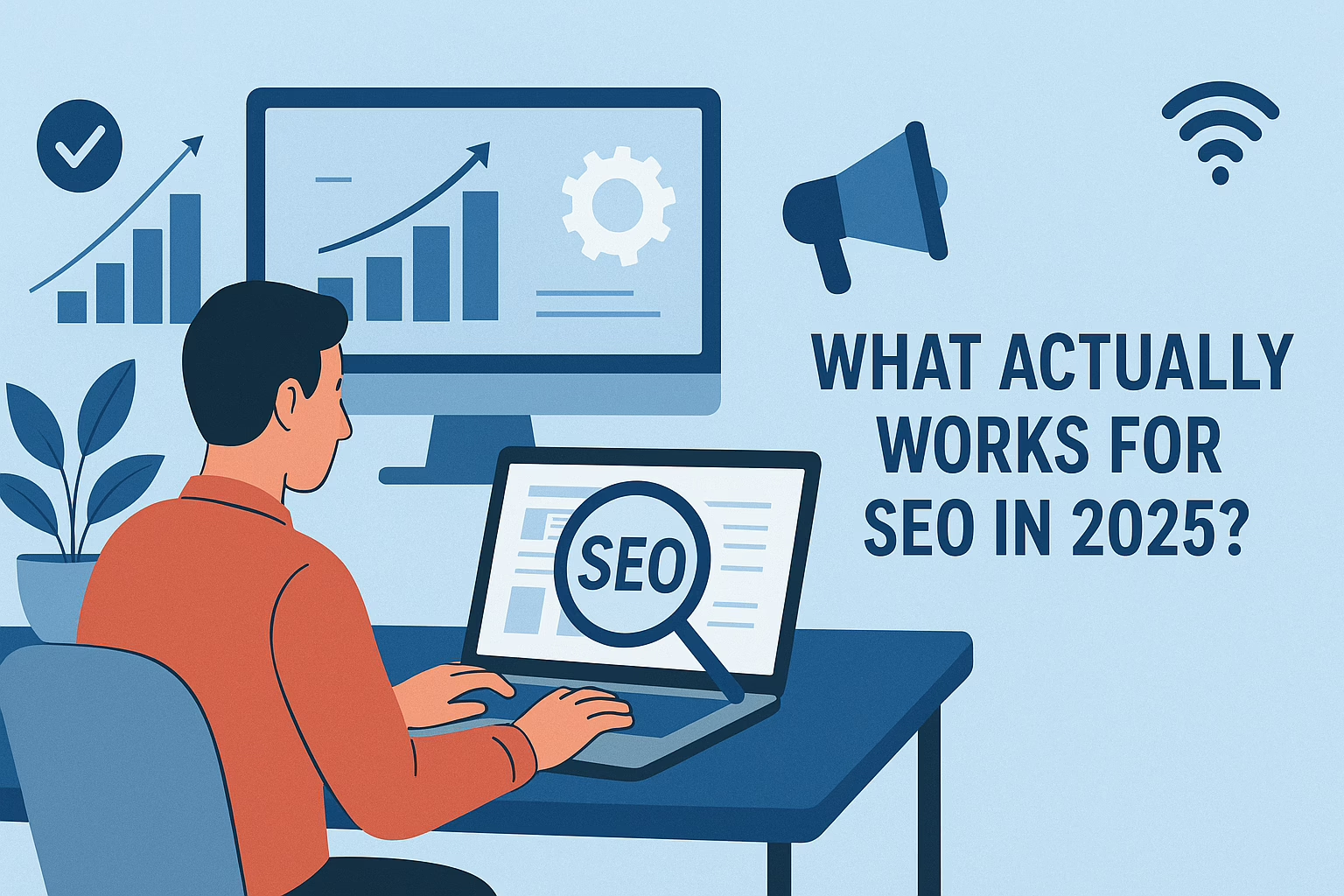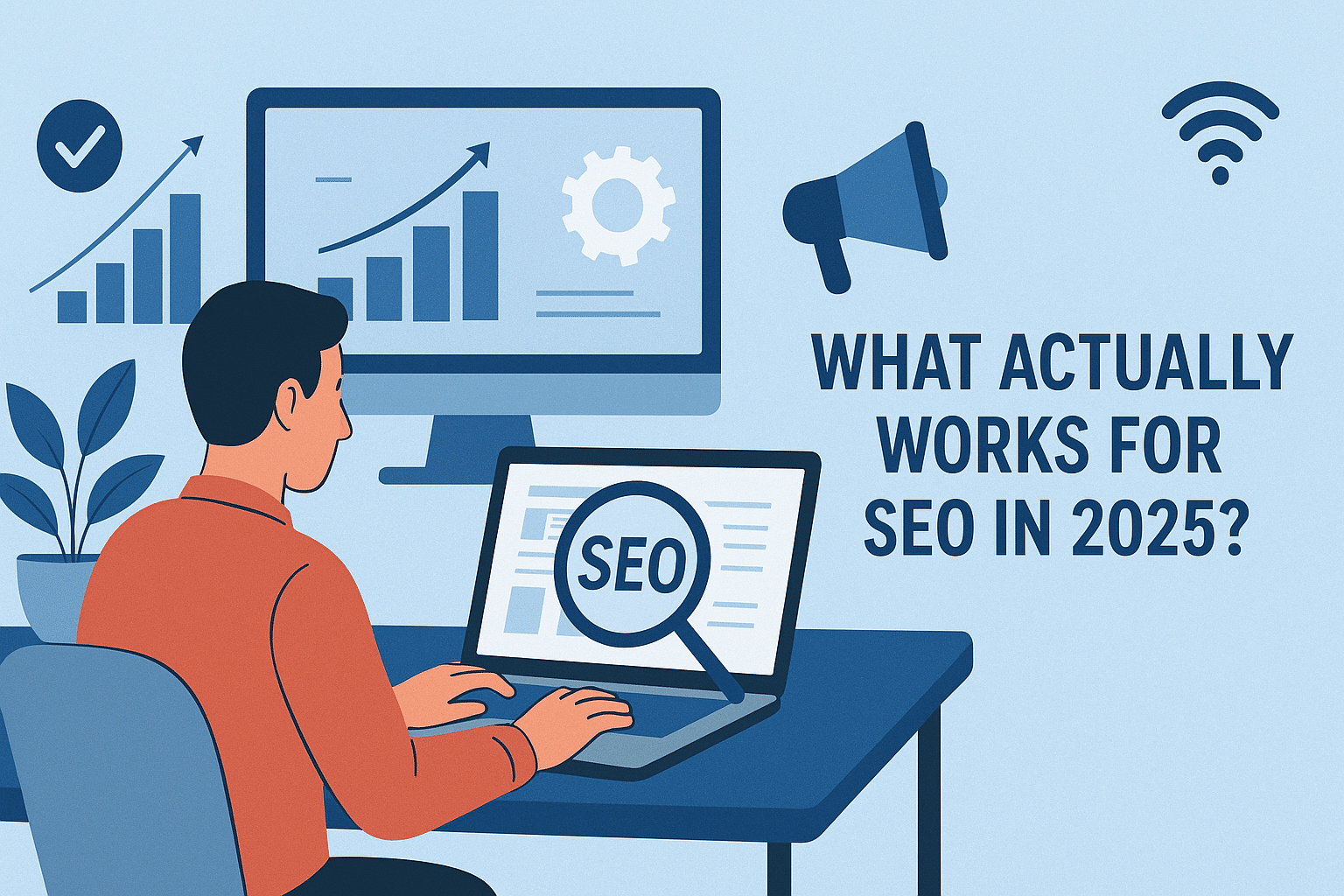In 2025, SEO has become smarter, more user-focused, and far less forgiving of shortcuts. At Sreyas IT Solutions, we’ve learned that the only strategies that consistently work are the ones built on transparency, real experience, and continuous improvement.
No tricks.
No keyword stuffing.
No shortcuts.
This SEO guide is shaped by what we’ve actually fixed, improved, and tested on our own website—real lessons from real work, not theory.
1. An SEO Guide Built on Real Work, Not Just Rules
At Sreyas, one of the most significant adjustments we made was to stop writing for search engines and instead concentrate on creating content that truly reflects our everyday work.
This implies:
- Disclosing the actual development problems we encountered
- Writing about performance issues and our solutions
- Demonstrating process enhancements rather than theories
- Creating comprehensive guides from client enquiries
- Outlining our errors and the steps we took to fix them
- Natural language usage as opposed to keyword stuffing
These days, Google’s algorithms value practical experience over theoretical justifications. The goal of authentic content is to help readers, which is why it ranks higher and fosters trust more quickly.
2. Show Real Experience, Not Generic Expertise
Google’s E-E-A-T update gives preference to content that shows real-world experience.
We’ve implemented this at Sreyas by doing the following:
- screenshots taken from actual projects
- Our development team’s observations
- Real performance outcomes
- Examples of apps we developed
- Issues we ran into and how we resolved them
This increases credibility and demonstrates that the information is supported by actual work rather than being copied from the internet.
3. Focus on User Intent Instead of Keywords
Nowadays, people don’t look for the “best app development company Kochi.”
what they look up.
“How do I choose the right app development team?”
“Why doesn’t my redesigned website rank?”
“How long does it take to develop a Flutter app?”
As a result, we produce content that addresses the intent rather than just the words.
This increases the content’s quality, relatability, and likelihood of appearing in AI-generated search results.
4. Fix Technical SEO Before Anything Else
With our own website, we discovered this the hard way.
Initial audits showed:
- Pages that load slowly
- JS that isn’t optimised
- A few uncompressed pictures
- Metadata duplication
- Absence of schemas
- Problems with mobile spacing
Compared to writing 20 blogs, solving these raised our ranking more quickly.
Technical SEO continues to be the cornerstone of all expansion.
5. Optimize for Zero-Click Searches
With AI answers and featured snippets dominating results, users often get answers without clicking a website.
To adapt, we:
- Add clear FAQs
- Write step-by-step guides
- Use definition blocks
- Include schema markup
- Structure answers in short, clear paragraphs
This keeps us visible even when users don’t click — and builds brand authority.
6. Share Real Problems We Solved
Our most-read blogs are not generic guides.
They’re posts where we talk about:
- Deployment failures
- API integration issues
- Firebase configuration mistakes
- UI performance bottlenecks
- App crashes we debugged
- Database optimizations we implemented
These articles attract developers, decision-makers, and clients — because they’re grounded in truth.
7. Update Old Content Regularly
We revisit our old blogs and pages to update the content regularly:
- Screenshots
- Tools
- Stats
- Steps
- Outcomes
- Internal links
Updating content helps us maintain freshness — something Google now ranks highly.
8. Build Authentic Backlinks (Not Purchased Ones)
We avoid paid or spammy backlinks completely.
Instead, we focus on:
- Guest posts
- Industry collaborations
- Discussions on LinkedIn
- Portfolio features
- Niche business directories
- Interviews & podcasts
Authentic backlinks last.
Spammy ones get penalized.
9. Integrate Videos and Visuals
Screenshots from our projects, UI timelines, code snippets, comparison charts, and short videos significantly improve engagement.
Google detects content usefulness — and visuals boost it.
10. Use Local SEO the Right Way
Instead of repeating “Kochi app development company” everywhere (which feels outdated), we focus on:
- Updating Google Business Profile
- Posting weekly
- Sharing project updates
- Getting genuine reviews
- Adding service-area pages
- Answering FAQs
This helps us attract quality, local leads without spamming keywords.
So What Actually Works for SEO in 2025
SEO in 2025 rewards:
✔ Real experience
✔ Natural writing
✔ Technical precision
✔ Honest content
✔ Consistent updates
✔ Solving real problems
✔ Zero keyword stuffing
✔ User-first approach
This is what we practice daily at Sreyas — both internally and for our clients.








